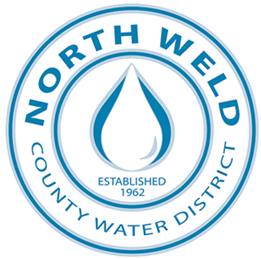Agricultural Business Owners, February 1, 2022
Customers,
The Western United States has been in 22 consecutive years of drought. In just five years, reservoirs in the Colorado River Basin have dropped to their lowest levels on record. Lake Mead and Lake Powell have lost 50% of their capacity. This past summer, the U.S. government declared the first-ever water shortage at Lake Mead and initiated Tier 1 federal drought restrictions on three states and Mexico. A second round of federal water restrictions may affect Colorado in the relatively near term and potentially result in Colorado River supply curtailments.
This enduring drought situation is affecting North Weld County Water District (“NWCWD” of “District”), which is now considered to be in an extreme drought according to the National Drought Mitigation Center and Colorado Department of Natural Resources. We do not anticipate this situation to improve in the foreseeable future.
In response, NWCWD has been conducting hydrologic river modelling to evaluate our drought readiness and prepare mitigation measures. The District’s water supply portfolio is derived from Colorado Big Thompson (C-BT) units, as well as some native water rights. The majority of the native water rights are associated with irrigation ditch share ownership in the Cache la Poudre River basin and trans-basin rights. When extreme drought conditions occur for an extended period, the NWCWD water supply will be limited
Many agricultural business customers within the District currently operate using District surplus water supply. If the drought conditions continue to persist and/or Colorado River drought mitigation measures affect the amount of water available to NWCWD from the Colorado river, NWCWD’s ability to provide this surplus water will be diminished or eliminated altogether. NWCWD recommends that customers who operate on NWCWD supply begin to prepare for drought conditions and not rely solely on NWCWD water supply to supplement their allocated water.
Due to the potential severity of an enduring drought, NWCWD will be placing flow control devices on water meters to ensure that district supply is not being used to supplement demand beyond customers’ allocations. We understand that this shift in water availability may present a challenge for customers and NWCWD is willing to assist you in identifying new water allocations and potential alternatives for supply or infrastructure. However, we strongly recommend that customers hire professional services to navigate this challenge.
Please also be aware that NWCWD is making some adjustments to its fee schedule. Please refer to the NWCWD web page for updated rates and fees.
Eric Reckentine, District Manager
North Weld County Water District
